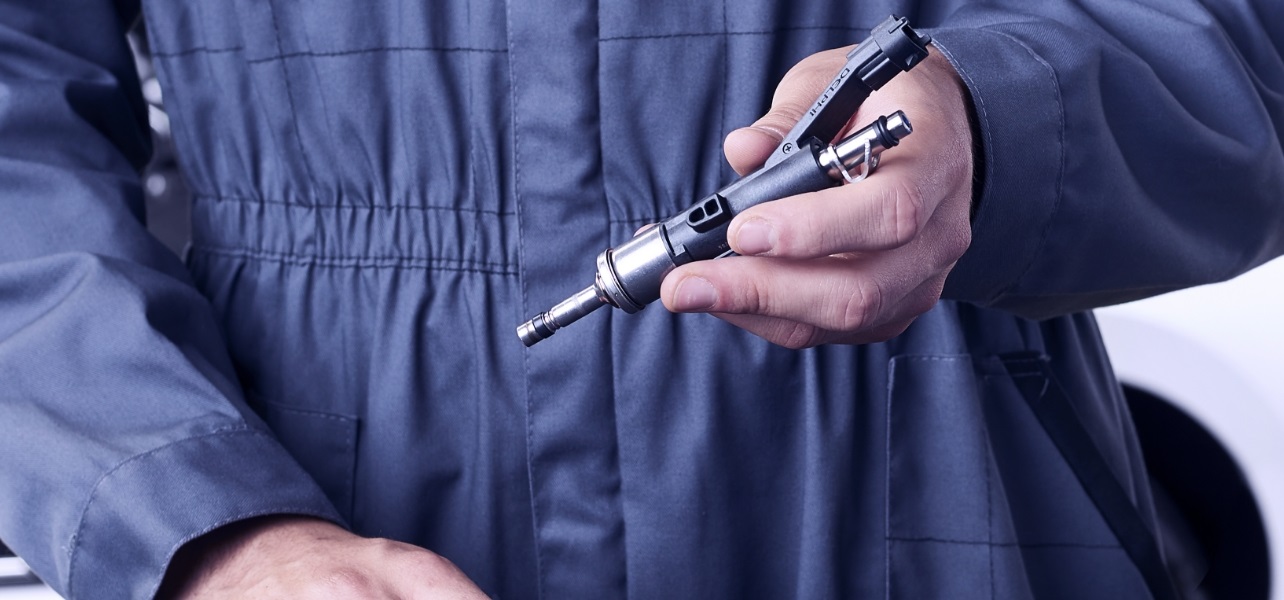Resource Highlights
To comply with the latest European Union environmental requirements, vehicle manufacturers are transitioning to a new A/C refrigerant – R1234yf. As well as significantly reducing the environmental footprint of the modern vehicle, the change represents a great service opportunity for garages equipped with the right tools and know-how. But are you ready? With the low down from leading A/C supplier Delphi, you can prepare your garage for the new legislation….as well as a new A/C season, reaping the commercial rewards that come with both.
Legislation: why the change?
In 2017, European directive 2006/40/EC finally came into full effect. The eagerly anticipated legislation requires that all newly designed cars and LCVs fitted with A/C, and manufactured for use in the EU, must use a refrigerant with a global warming potential (GWP) of 150 or less. GWP measures how much energy a gas absorbs compared to the same quantity of CO2 over a 100-year period, so in simple terms, the higher the number, the bigger the environmental impact.
Cue the introduction of HFO-1234yf. More commonly known as R1234yf or just 1234yf, it has a GWP of 4, substantially reducing emissions and making it a very worthy substitute. By contrast, its predecessor R134a, although still in use today, has a GWP of 1430.
What is R1234yf?
R1234yf is a new class of refrigerants known as hydrofluoroolefins (HFO). R134a, is hydroflurocarbon (HFC). Whilst these two classes are for the most part similar, there is one big difference; HFO refrigerants have a double carbon bond, allowing it to breakdown in the atmosphere much quicker if it is leaked.
How should garages prepare?
To accommodate the new refrigerant and ensure correct identification during servicing, new connectors have been introduced to the A/C loop, meaning new equipment is required. Due to the still significant parc of R134a equipped vehicles, dual recovery/charging stations are available, featuring separate refrigerant tanks and hoses for both gases. Alternatively, if you already have a good R134a station, or are new to A/C servicing, you may wish to consider a standalone R1234yf machine. You’ll also need a new refrigerant leak detector and a refrigerant identifier, if it’s not built into your A/C machine.
Another point to be mindful of is the gas itself. The cost of R1234yf is significantly higher than its predecessor, and although it will likely reduce as usage increases, recharging costs could soar short-term, especially as VM dealers are currently able to charge a premium due to the lack of competition from independents. To overcome this, and help justify the difference to your customers, you may wish to offer a fixed price for the A/C service and regassing, and charge for the refrigerant used separately.
A significant opportunity.
Because of the additional costs involved, and perhaps the ongoing uncertainty regarding timescales, the take up so far has been limited with only a fraction of A/C capable garages investing. This has created a gap in the number of qualified technicians able to service these vehicles.
On a positive note, however, it presents a significant opportunity for those garages who have already upgraded or plan to do so shortly. Despite the new gas only coming into effect in January 2017, there are already millions of vehicles on the road using R1234yf. And this number is expanding rapidly.
By investing in the new equipment, garages will be able to retain new vehicles in their workshop, and importantly, will have a distinct competitive advantage over other independents who don’t yet have this capability. Either way, with the increased revenue and profit that this additional competence will generate, you should be able to pay back the initial investment in no time at all, and of course, enhance your profitability ongoing.
How Delphi can support!
It’s important to remember that any technician working on the A/C system should be F-Gas certified. We offer an IMI ATA approved A/C with F-gas training programme. The two-day course includes an overview of the components, how they work and how best to diagnose faults. It also covers the recently introduced EC legislation with an assessment for EC307/2008 F-gas legislation.
We also offers a comprehensive range of key system components - compressors, condensers, cabin filters, expansion valves, pressure switches, receiver driers and compressor oils – featuring the very latest technology for improved fuel economy, reduced emissions and faster time to comfort. In addition, our DS diagnostic tool provides the ability to perform in-depth diagnostics including component activation of the compressor clutch and interrogation of the A/C system to read fault codes.
SIGN UP TO FIND MORE
Fill up your details to hear more from our experts and get the latest updates from Delphi.



